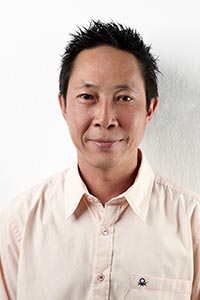
Partnership. This word sounds warm and tender. It also implies mutual respect. Then again, it can also be deceiving.
Just take a closer look at the Joint Vision Statement for the Thai-US Defence Alliance. It is "a 21st Century Security Partnership" for the two countries whose ties go back 180 years.
The statement was carefully crafted and the wording was delicately selected for Defence Minister ACM Sukumpol Suwanatat and his American counterpart, Leon Panetta, so they both could be proud when they signed it on Nov 15.
It is one-and-a-half pages long, concise and gets to the point. The US pledges support for the Thai armed forces as a key player in Asean and other forums.
That seems to be the only benefit Thailand gets from it as the pessimists deem it meaningless while sceptics consider it to be somewhat mild. Thailand cannot do anything much, or do anything at will, really, when a crisis pops up in a region that requires the consensus of all countries in the region to tackle it.
The key words are in two long sentences, which say it all.
"The Thai-US defence alliance supports Thailand's position as a regional leader _ including the Association of Southeast Asian Nations and other regional bodies _ and the United States' ensuring peace in the Asia-Pacific."
"Similarly, Thailand's support of US presence in the region enables the stability that will allow the Asia-Pacific region to prosper under the principles of open and free commerce, a just international order, fidelity to the rule of law, and open access by all to shared maritime, space and cyber domains." That is what the US wants to hear most.
The old school of thought in Washington to contain China and keep the US as the centre of the world is out-of-date, though it is not dead yet. The only way forward for the US is to make the Southeast and East Asian regions more balanced by making its presence felt _ militarily and economically _ in this part of the Pacific Ocean.
The territorial disputes over the Spratlys are a perfect reason for them to give themselves a presence here.
And do not overlook another partnership. It is the Trans-Pacific Partnership (TPP). The super free-trade agreement driven by the US is meant to counter the rising economic influence of China.
Thailand has agreed to join negotiations. As a generous host, the government would not let US President Barack Obama come here and go away empty-handed. The decision, therefore, was a gift for him.
The name implies that everybody looks equal in talks on this deal. But it is not at the negotiating table when economic power is not on an equal footing.
The US will press for more protection on intellectual property rights and biodiversity _ and what Thailand will get in return is a big question mark.
The government has warned doubters not to be over-wrought about this decision because the country has not made any commitment to it. But once the country goes in, it will be difficult to simply walk away as some Thai officials suggest, unless other partners are unusually generous.
Ironically, the Foreign Ministry once cautioned about the possibility of the TPP overshadowing the role of Asean as an economic driver.
The Asean-plus formula is going well as economic growth driven by China prospers. The US is not happy to be left out in the cold in Asia and the TPP is a roadmap to keep its influence here.
Mahathir Mohamad knew this very well when he was pushing for the East Asia Economic Caucus as Malaysian prime minister in the 1990s by leaving out the US from the forum.
But Thailand knows how to survive while living between the waning and up-coming superpowers because the country has more than career diplomats to keep all sides happy and stay balanced.
Luckily, this country is an outsider in the maritime disputes out there in the South China Sea which will make diplomacy more complicated because of the vulnerable position of China and the US.
Thailand has only internal political disputes _ and that seems to be enough.
Saritdet Marukatat is Digital News Media Editor, Bangkok Post.
